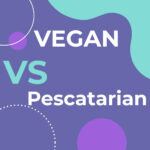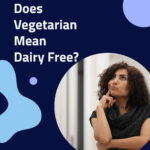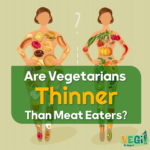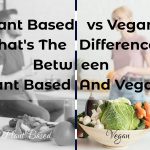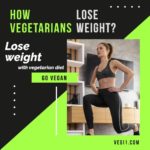Are Vegetarian Diets Healthy?
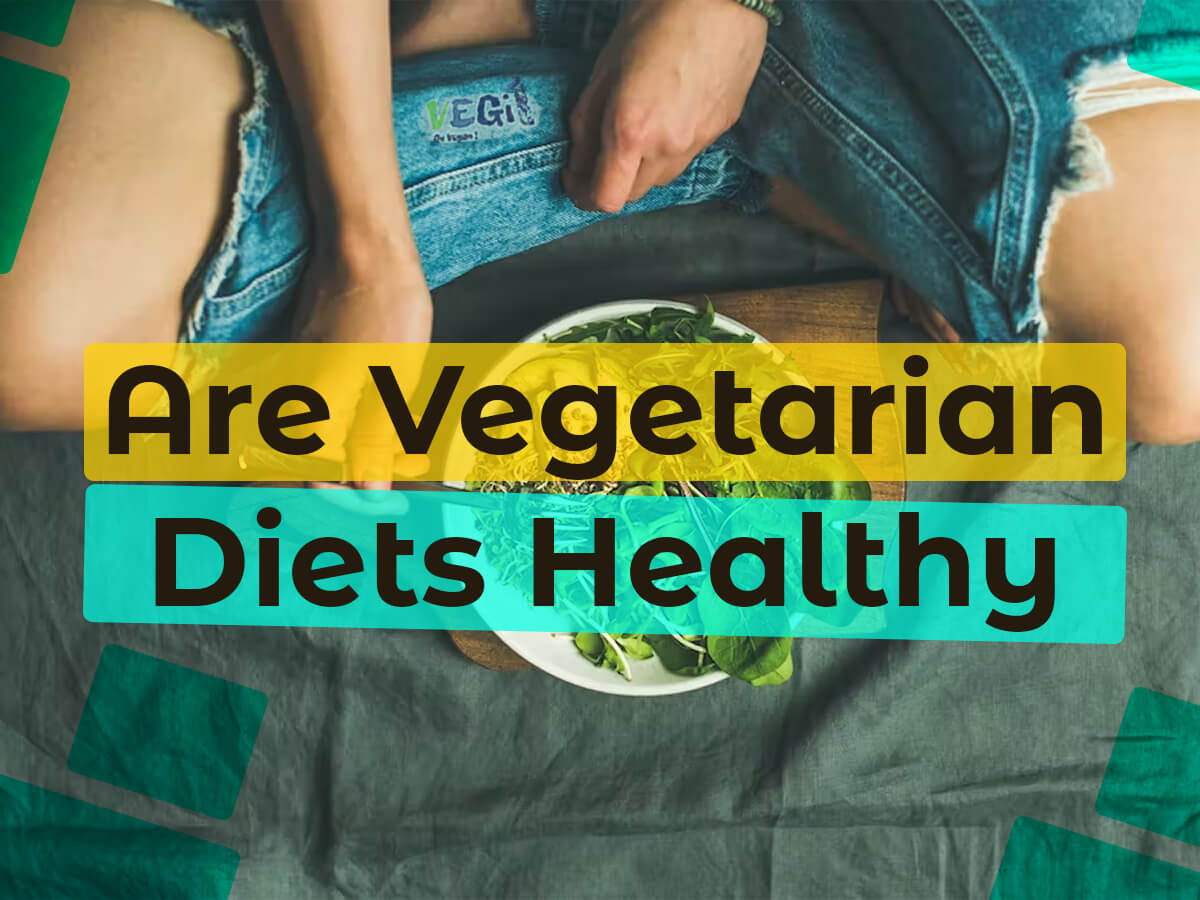
In recent years, vegetarianism has gained quite a popularity, with more and more people opting to skip meat and embrace a plant-powered lifestyle.
Are vegetarian diets healthy for you? Are you missing out on essential nutrients by ditching the burgers and chicken nuggets?
Well, fear not, my friend! We’re about to uncover the truth behind vegetarian diets and their impact on your health.
So, grab a seat, put on your curious hat, and discover how healthy vegetarian diets can be!
In this article you will read:
Nutritional Considerations for Vegetarians
Being a vegetarian means eliminating meat and fish, but you’ll still get all the essential nutrients.
In fact, with proper planning, you can easily meet your nutritional needs while enjoying a wide variety of delicious plant-based foods.
There are plenty of plant-based protein sources that can fulfill your daily requirements. Foods like tofu, tempeh, lentils, chickpeas, quinoa, nuts, and seeds are packed with protein power.
You can also get creative with plant-based protein powders if that’s your thing.
There are plant-based sources of iron that can easily meet your needs. Foods like spinach, kale, lentils, beans, fortified cereals, and tofu are fantastic sources of iron.
Foods like broccoli, kale, bok choy, fortified plant-based milk, and calcium-set tofu can help you meet your calcium needs without the cow’s involvement.
Fortunately, there are plant-based foods fortified with B12, such as plant-based milk, cereals, and nutritional yeast.
Flaxseeds, chia seeds, hemp seeds, walnuts, and algae-based supplements are all fantastic options for your omega-3 fix.
Health Benefits of a Vegetarian Diet
First things first, let’s tackle the question of whether vegetarian diets are healthy. The short answer? Absolutely!
One of the biggest perks of a vegetarian diet is its positive impact on heart health.
Ditching meat and embracing plant-based foods reduces your saturated fats and cholesterol intake, major culprits of heart disease.
Plant-based diets tend to be naturally low in cholesterol, and the absence of animal products means you won’t consume any dietary cholesterol.
Fruits, vegetables, whole grains, and legumes are low in calories and high in fiber, which helps you feel fuller for longer.
Plant-based foods are often rich in fiber, complex carbohydrates, and antioxidants, which help regulate blood sugar levels and improve insulin sensitivity.
The fiber-rich nature of plant-based foods serves as a feast for these beneficial microbes, promoting a diverse and balanced gut flora.
Additionally, vegetarian diets are brimming with antioxidant-rich foods that help fight off pesky free radicals and reduce inflammation in your body.
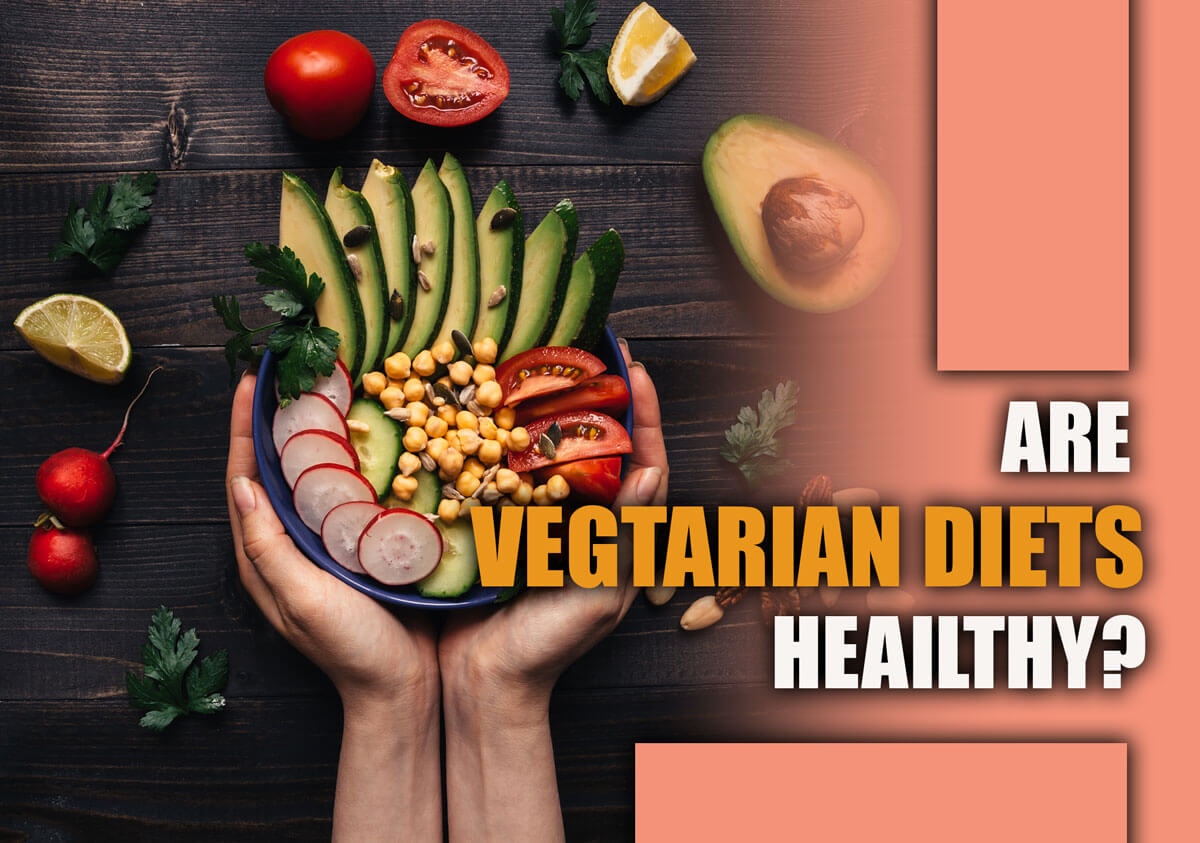
Potential Nutrient Deficiencies in Vegetarian Diets
One of the concerns people often raise about vegetarian diets is the possibility of not getting enough protein, but don’t let that cause you to ask yourself, Are vegetarian diets healthy?
Well, let me tell you, there are plenty of plant-based protein sources to choose from! Legumes like lentils, chickpeas, and beans are fantastic options.
Another nutrient people worry about is iron. While it’s true that plant-based iron (known as non-heme iron) is not as easily absorbed as iron from animal sources (heme iron), there are clever ways to enhance its absorption.
Iron-rich foods with vitamin C sources, like citrus fruits, bell peppers, or tomatoes, can significantly increase iron absorption.
Many dairy alternatives and breakfast cereals are fortified with this essential vitamin. You can also consider a B12 supplement to make sure you’re covered.
Lastly, omega-3 fatty acids. These healthy fats are essential for brain function and overall well-being.
You can find omega-3 fatty acids in flaxseeds, chia seeds, walnuts, and algae-based supplements.
- Foods High in Omega 3 for Vegetarians and Vegans
- Vitamin C Rich Foods for Vegetarians
- What Foods Are High in B12 Vitamin For Vegetarians and Vegans
- Which Vegan Foods Are High in Protein?
Protein Sources in Vegetarian Diets
Let’s admit without protein, we can not say vegetarian diets are healthy; in this section, let’s solve it once and for all and prove everyone vegetarian people got it covered!
Regarding protein, there are plenty of fantastic sources for vegetarians.
Let’s start with the superstar of plant-based protein: legumes! Chickpeas, lentils, black beans, and kidney beans are a few examples of legumes packed with protein, fiber, vitamins, and minerals.
You can enjoy them in soups, stews, salads, or delicious veggie burgers.
Tofu and tempeh are more protein powerhouses that should be on your radar. They’re made from soybeans and are incredibly versatile.
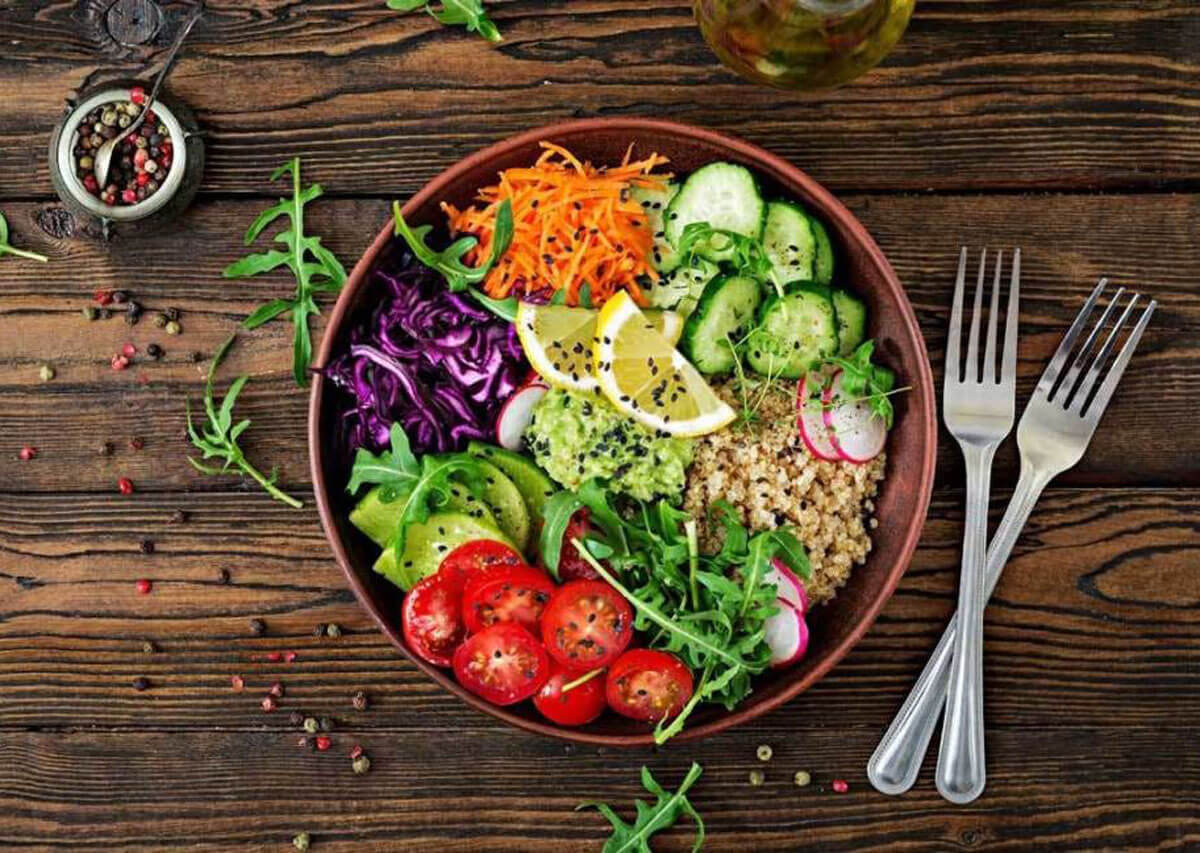
The Role of Plant-Based Foods in Disease Prevention
Regarding disease prevention, plant-based foods are like superheroes in disguise.
They pack a punch of essential nutrients, fiber, and antioxidants that can help keep those pesky illnesses at bay.
Did you know that eating your greens can also be a secret weapon against cancer?
Plant-based foods, such as fruits, vegetables, legumes, and whole grains, are loaded with powerful antioxidants that help protect your cells from damage.
By emphasizing plant-based protein sources like legumes, tofu, and nuts, you can reduce your intake of animal-based fats and proteins, which have been linked to an increased risk of developing type 2 diabetes.
The high fiber content in plant-based foods also helps regulate blood sugar levels and improve insulin sensitivity, which is essential for preventing and managing diabetes.
Weight Management
Going vegetarian can be a game-changer if you want to shed pounds or maintain a healthy weight. Why?
Vegetarian diets are often packed with nutrient-dense foods that are naturally lower in calories. Fruits, veggies, whole grains, legumes, and nuts become your best friends.
Imagine filling your plate with vibrant, colorful veggies, delicious legumes like chickpeas or lentils, and mouthwatering whole grains like quinoa or brown rice.
These foods provide essential nutrients while lowering fat and calories compared to many meat-based options.
Speaking of fats, let’s remember the good ones. A vegetarian diet can contain heart-healthy fats in foods like avocados, nuts, and seeds.
One of the things I love most about vegetarian diets is the abundance of delicious options.
With so many plant-based recipes and creative meat substitutes available, you will feel energized and energized.
Having low calories meals, as much as you want, knowing it is not harmful, is a vegetarian gift! Now you tell me, Are not vegetarian diets healthy?
Environmental Impact of Vegetarian Diets
Now, let’s address the question of whether vegetarian diets are healthy.
Spoiler alert: they are! Numerous scientific studies have shown that well-planned vegetarian diets can provide all the necessary nutrients for a healthy and balanced lifestyle.
One of the biggest contributors to environmental degradation is animal agriculture.
Livestock farming significantly impacts deforestation, greenhouse gas emissions, water pollution, and the depletion of natural resources.
By choosing vegetarianism, you’re actively reducing your carbon footprint and moving towards a more sustainable future.
Let’s break it down. Animal agriculture requires vast land to raise livestock and grow animal feed.
This leads to deforestation, as forests are cleared to make room for grazing animals or to cultivate crops for animal feed.
Adopting a vegetarian diet indirectly contributes to the conservation of forests and the preservation of biodiversity.
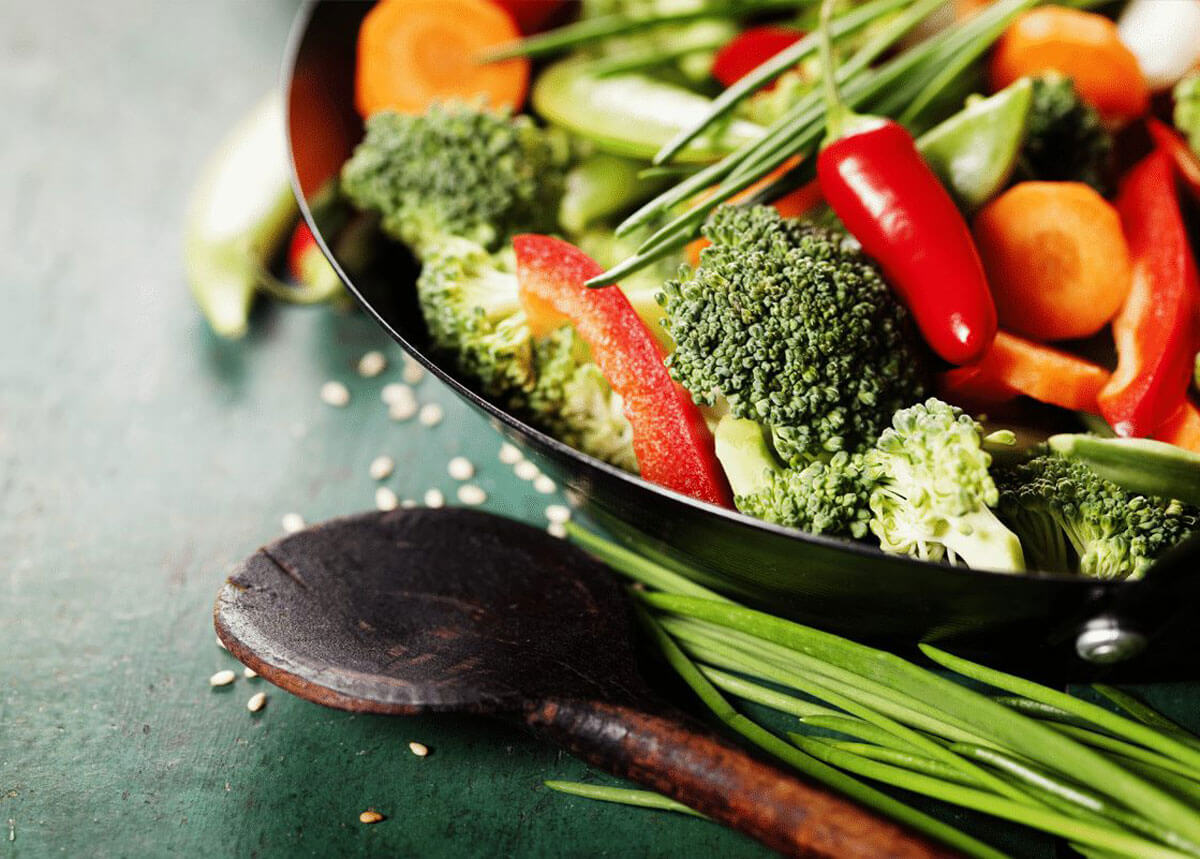
Challenges & Tips for Adopting a Vegetarian Diet
One of the challenges might be dealing with social situations. Eating vegetarian can sometimes pose challenges when dining out or attending social gatherings.
You might encounter puzzled looks or curious questions from friends and family who need to become more familiar with your dietary choice.
Be prepared and communicate openly. Before dining out, check the menu online or call the restaurant to see what vegetarian options are available.
When attending gatherings, offer to bring a dish to share, ensuring there will be something delicious and vegetarian for you to enjoy.
Another challenge might be staying inspired and avoiding food ruts. Variety is the spice of life, and the same applies to your vegetarian meals.
Embrace culinary adventures. Explore different cuisines and experiment with diverse flavors and ingredients. Look for vegetarian cookbooks or browse online recipe databases for inspiration.
Join vegetarian communities, both online and offline, to connect with fellow herbivores and exchange ideas.
Continuously trying new things’ll keeps your taste buds excited and your meals enjoyable.
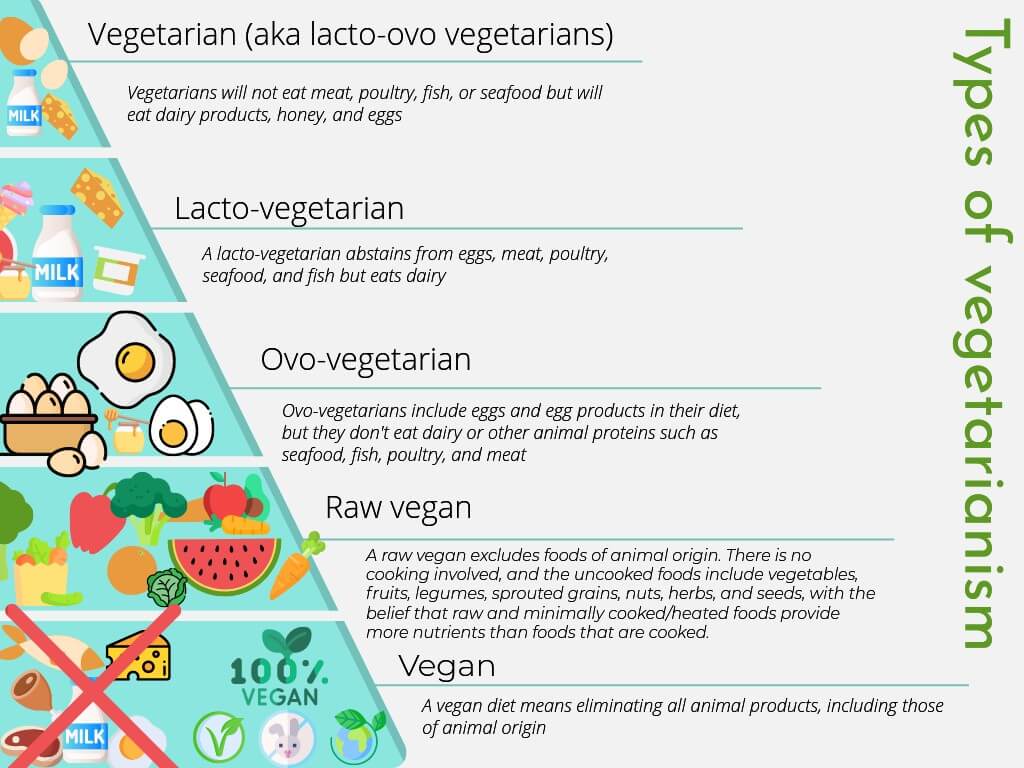
Comparing Different Types of Vegetarian Diets
Are vegetarian diets healthy? Wait a moment, how many diets are we talking about here?
Let’s start with the Lacto-vegetarian diet. This one is for all cheese lovers. Lacto-vegetarians avoid meat, fish, and eggs but still enjoy dairy products.
The great news is that you can still get your protein fix from dairy products rich in calcium and other essential nutrients.
Next up, we have the ovo-vegetarian diet. Now, ovo-vegetarians steer clear of meat and dairy products, but they do include eggs in their diet.
So if you’re an egg lover, this vegetarianism might suit you well.
Lastly, the vegan diet takes it further by excluding all animal products. No meat, dairy, eggs, or any other animal-derived ingredients. Trust me, plan-based is enough!
-
Heart Health
Your ticker deserves all the love and care in the world. A vegetarian diet can be a game-changer for keeping your heart happy.
And that is a big yes to whether vegetarian diets are healthy.
Research has shown that vegetarians generally have lower blood pressure and cholesterol levels than their meat-eating counterparts.
That means a reduced risk of heart disease and stroke, my friend!
When you embrace a vegetarian lifestyle, you’re saying goodbye to artery-clogging saturated fats found in meat and hello to heart-loving fiber, antioxidants, and healthy fats found abundantly in fruits, veggies, legumes, and whole grains.
-
Digestive Health
One of the superstar benefits of a vegetarian diet is its high fiber content. Plant-based foods like fruits, vegetables, whole grains, legumes, and nuts are fiber-rich.
This magical nutrient keeps things moving smoothly through your digestive tract, promoting regular bowel movements and preventing constipation.
Your gut is home to trillions of tiny, friendly bacteria known as the gut microbiome. These little helpers play a vital role in maintaining digestive health.
Guess what? They love vegetarian diets! The fiber-rich plant foods you devour are a feast for these helpful gut bacteria.
As they chow down on the fiber, they produce short-chain fatty acids, nourishing the cells lining your gut.
Common Myths & Misconceptions
Think again, what makes you wonder if vegetarian diets are healthy?
Vegetarian diets lead to deficiencies. Oh, dear, this one is a persistent rumor.
The truth is, any diet can lead to deficiencies if it’s poorly planned. Vegetarian diets can be super healthy as long as you get a variety of foods.
Are vegetarian diets boring? Whoa, hold on a second! Vegetarian diets are anything but boring. They open up a whole new world of flavors and culinary adventures.
Are vegetarian diets only for hippies and tree-huggers? No, vegetarian diets are for everyone!
They’re inclusive, compassionate, and a wonderful way to nourish your body while reducing your environmental footprint.
Summing Up
when it comes to the question of whether vegetarian diets are healthy, the answer is a resounding yes!
While it’s true that a vegetarian lifestyle means avoiding meat and fish, it doesn’t mean compromising on nutrition or well-being.
Numerous studies have shown that well-planned vegetarian diets can provide all the necessary nutrients, including protein, iron, and vitamins.
They are often rich in fiber, which aids in digestion and promotes a healthy gut.
So, explore the wonderful world of vegetarian cuisine, experiment with exciting flavors, and nourish your body and mind while doing what’s best for your health and the planet!
What is your idea about vegetarian diets?
Do you think it is healthy or not?!


